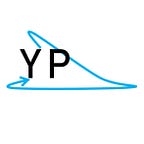A Good Tip for Getting Engaged in School Studies
Studying is a term closely associated with the school period of children and young people. In short, it can be said that studying means attending a school to acquire skills and abilities. In the school context, the term studying has become worthy of stereotype, starting to occupy the role of punishment or effort beyond possibilities.
Generally, a student on their student journey ends up spontaneously identifying with a subject, but this is not enough, as one day society expects them to be able to have a basic level of skills that support them in their life missions. adult or productive. Thus, contact with the most diverse subjects becomes an obstacle, if not an insurmountable challenge.
During the student journey, the individual is not yet accustomed to reflecting (in the sense of behavior) to significantly alter their future, that is, the individual is not in a position to have an existential perspective.
But, how about someone who could have a tip on how to turn what would otherwise be a study work effort into something productive? Because a timely tip can be a tool for discernment and self-help.
First we have to understand that studying is something that we all do spontaneously, without realizing it, for example:
- when we look at the price and expiration date of a product before buying it.
- when an athlete throws a basketball to his teammate, he does so at the best time aiming for the shot.
- When an individual wants to go to an address that has not yet been visited.
We prefer to refer to tips on how to study, as there is no doubt that each individual has a very personal way of doing it, in addition, the academy has explicitly established an entire framework of procedures and methodologies.
The Tip
- The individual needs to put themselves on the path to the goal, preferably spontaneously. For example: learning to sing a certain song;
- the individual must have already more or less already decided on some preference. For example: pop music;
- the individual must seek to preferably appreciate what is of interest to him (or not) and do so through different dimensions, and
- vary the depth of detail search. For example: like climbing a mountain, you choose a path and a height limit to reach.
A Typical Case
Suppose a student needs to learn about the French Revolution. He needs to learn this subject, then he will be on the way to the goal. It might be best to set aside a little time to do this, that would be your preference. Then there are the dimensions I would look for. Then he could:
Ask yourself a question about the form: what does the word revolution mean in the title of the subject? If he were to use a WEB search tool,
he would find something like this for the word revolution:
1º. a forcible overthrow of a government or social order, in favor of a new system. “the country has had a socialist revolution”
2º. an instance of revolving. “one revolution a second”
The first would be the primary meaning and the second the secondary meaning. It should be noted that such information returned, despite being correct, is contextual and contemporary to current moments in society. It does not essentially reflect the historical dimension of the term.
So the research would have to be in-depth. One way to do this would be to research the etymology of the word.
It would result something like:
Origin
late Middle English: from Old French, or from late Latin revolutio(n- ), from revolvere ‘roll back’ (see revolve).
When deepening the search, the individual is surprised to observe an inconsistency because the etymology portrays that the primary meaning of revolution corresponds to the secondary result of the first search.
No matter how much the individual delves into the texts of the French Revolution, the result would correspond to a symbolic study.
To understand the origin of the term revolution as the name of a segment of history, it would be necessary to deepen the research until reaching the year 1543 of the Christian era, in which Nicolaus Copernicus’ book was published, a fragment of which is shown below and in which appears mention of the term.
This book represented a total break with the philosophical standards of the time, largely due to what the term revolution denoted, present in its title (in Latin), that is, physical rotational movement of celestial bodies. This “devastating” effect became a concept that over the centuries spread to name vanguard rebellious social, political and economic movements, one of which was the French Revolution (from 1789 to 1799).
See that understanding the essence of information builds a shortcut to learning.
We call this studying.
